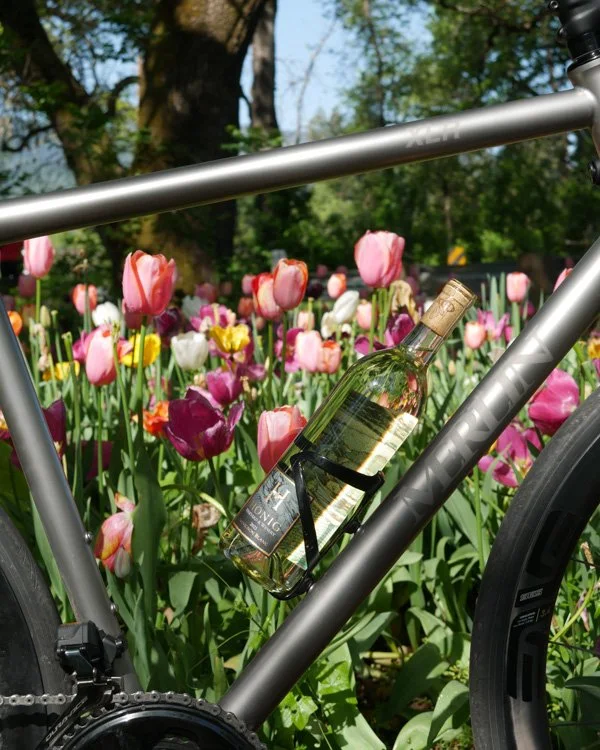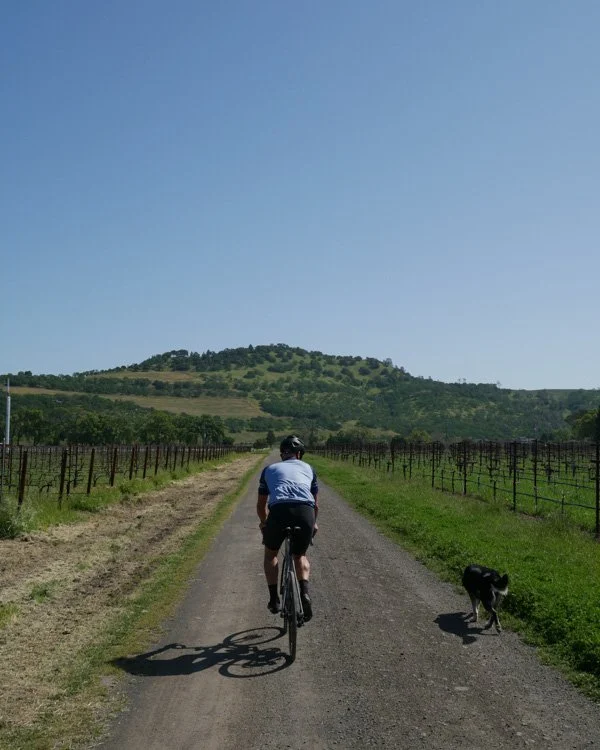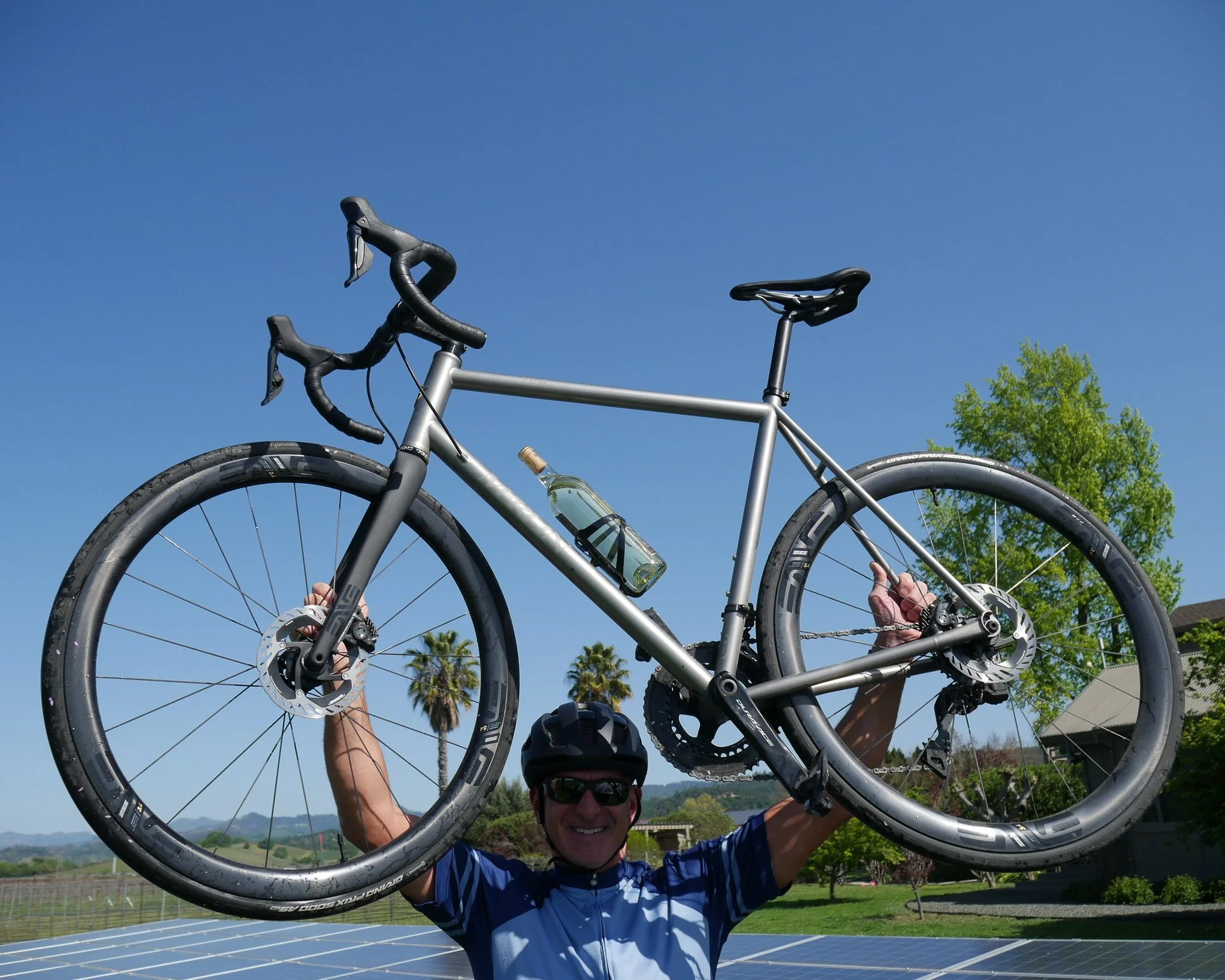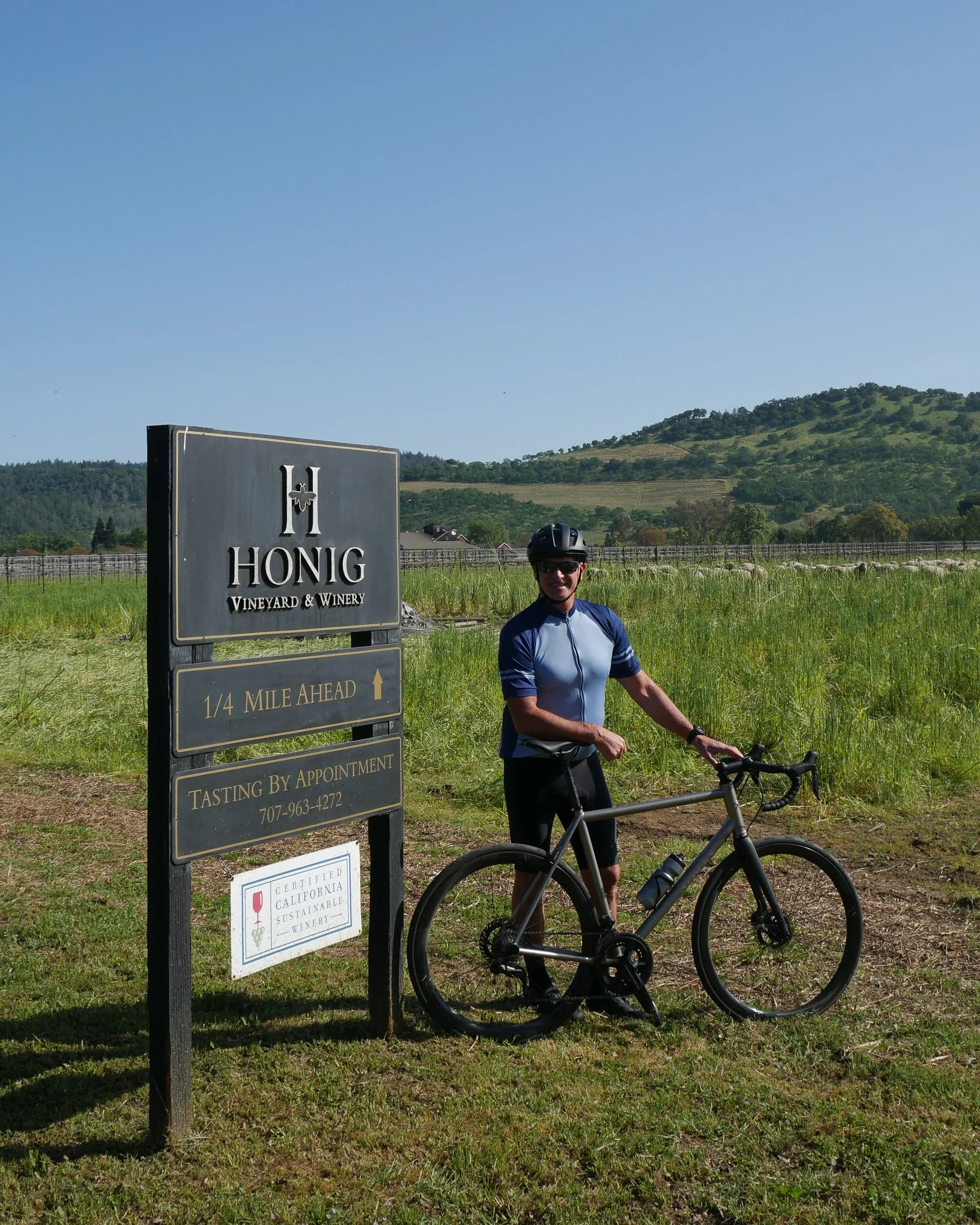Wine and Bikes Pt. 2: A Journey in Sustainability
Join me on a journey of wine, bikes, and sustainability for part two of our series on Steven Honig, his Merlin, and the honig family vineyard & winery.
As I prepared to sit down to write the second part of our story on Steven Honig, it was only fitting that – after casually keeping an eye out for it around town – I stumbled upon a box with the name “Honig” on the shelves at Pettyjohn’s Liquor Store here in South Boulder. It was almost as if fate had known I’d be writing the story that evening. Naturally, I grabbed a bottle, got home, poured a glass, and settled in to finish transcribing Steven’s story – one that flows from his early days as a bike messenger, to inheriting the Honig family farm, to his current role carrying on the family tradition of sustainable farming.
Background
In 1964, Steven’s grandfather, Louis Honig, purchased the Honig family farm – originally growing apricots, plums, and walnuts – after serving many years as a skilled advertising executive.
A true legend in his craft, Steven’s grandfather was one of the advertising forces behind household names like Levi’s, Clorox, and Wells Fargo. But it was a campaign for Italian Swiss Colony Wines – then the third-largest wine company in America – that would eventually inspire the family’s trajectory into the business of wine. The campaign was wildly successful, drawing over 350,000 visitors to the winery in 1967 – on par with Disneyland’s yearly attendance at the time. His work essentially kickstarted the concept of California wine tourism, planting the idea that Napa Valley wasn’t just a place – it was a lifestyle.
As years passed, fond memories of riding around on tractors, laying irrigation pipes with his brother, earning about $.25 an hour, were shared during my correspondence with Steven, as talks of child-equivalent happy hour meetups at La Luna – the town’s general store – resumed after a hard day’s work for a hard-earned scoop of ice cream. The kids would walk 30 minutes to the store and 30 minutes back, for their sweet, sweet sugar reward. It was as if the youngsters ran a small community of their own. Steven laughs, “We were able to drive motorcycles and drive cars and tractors and we had our own little Lord of the Flies – there were a lot of rules that didn’t apply to us.”
Times were simpler then, full of adventures and excitement for the Honig kids that would carry on the tradition for generations to come. A few years after the passing of Steven’s grandfather in 1977 the family started making their own Sauvignon Blanc wine in his honor which was sent down to the Orange County Fair. There, it won the double gold medal and put Honig Wine on the industry landscape. That same Sauvignon Blanc, today, is a top-seller in restaurants and retail stores across the United States.
Now, 60 years after the purchase of the Honig farm, the family has welcomed their fourth generation to the team as Steven’s daughter, Annika, and son, Gavin, aid in sales and promotional support the business under Steven and his brother, Michael.
“I loved it. I really have a connection to the land. It was a freedom that I had never felt. Equivalent to the freedom you feel when you are on a bike”
A mission Towards sustainability
At the solar-powered Honig Vineyard and Winery, sustainability and sustainable wine growing remain the driving philosophy to the business' key operations. As part of their “Bee Sustainable” initiative, the vineyard houses multiple colonies of bees as an integral part of the farm’s ecosystem. The bees pollinate a hedgerow of nitrogen rich plants on the outskirts of the vineyard that, in turn, entices other insects away from vines and away from the farm. The vineyard also maintains bird and bat houses around the property to control the insect population eliminating the need for herbicides and pesticides. In turn, the bee colonies serve as the company’s “canary in a coal mine” – their performance indicates the overall tenacity of their sustainable habitat.
The family also employs a flock of sheep for sustainable maintenance of vegetation around the farm. As the sheep feed on the grass, they eliminate the need for diesel-powered tractor runs while sheepdogs herd and manage the flock.
The business itself reflects the same values – with an all-female winemaking team and a strong, loyal workforce, many of whom have been part of the Honig family for decades, including one dedicated employee who’s been there for 30 years. As they’ve grown from producing just 200 cases of wine to 75,000 cases annually, their pride in building both a respected, sustainable brand and a supportive workplace culture is evident. “We feel that our employees are really our family. I feel very connected to them and humbled by them staying for significant parts of their lives.”
the perfect pairing
The Honig company prides itself in full-chain operation, unlike many businesses that only participate in part of the process. At Honig they grow the ingredients, vinify and bottle the product, market and promote it, and sell it themselves. For Steven Honig, the love of wine extends beyond what’s in the glass. “Between my brother and I, the quote is always, ‘we’d rather sell it than drink it,’” he laughs. “I just really love the business of wine.”
What he truly values is how wine acts as a catalyst for conversation, for connection, and for community. It’s the meal it accompanies, the friends you share it with, and the stories and experiences it sparks.
That same ideal can be paralleled to cycling. Sure, it’s about the bike and the ride – but it’s also about who you’re riding with. It’s the laughs shared along the way, the post-ride hangout, and the memories created that last a lifetime. Steven says, “Just like wine, cycling brings people together and enhances life.”
Both wine and bikes, he believes, are about more than consumption or performance. They’re tools for connection. “You get so much back from riding – it’s such a feeling. Freedom. Robin Williams said it’s the closest thing to flying. And when you’re that happy, it radiates. You elevate everyone around you.”
In a world that needs more joy, more sustainability, and more meaningful human connection, wine and bikes offer all three. It’s about the people, the passion, and the moments that stay with you long after the bottle is empty or the ride ends.
The Journey Continues
As I finish sipping my glass of the signature Honig Sauvignon Blanc, I continue to ruminate on a point that Steven made to me in our final interview. It’s this idea of converting potential energy into kinetic energy through cycling – alluding to the feeling you get, the release of stored or pent-up energy and emotions that happens almost as soon as your first pedal – the “potential” energy that converts into a positive force – is unparalleled by much.
Kinetic energy, by definition, is positive energy that is created through movement. The same thing happens in your mind. Positive energy is created when you start to move. With every mile, thoughts untangle, clarity returns, and peace of mind takes over – turning stored emotion into positive momentum. “When you're at a high cadence and your body is feeling good, you are able to make better decisions,” Steven said. “You work things out when you’re on the road.”
Steven, thank you so much for sharing your story. Me, and the rest of the team at Merlin, wish you many more joyous years on your new XLR. And folks, if you’re ever in Napa Valley, schedule an appointment for a tasting at the Honig Vineyard and Winery and give Steven and the Honig team a warm welcome for us!
Cheers!

























